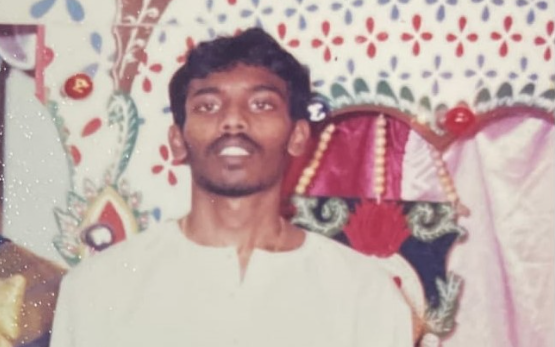The family of death row convict Tangaraju Suppiah has made a desperate appeal to the Singapore authorities to save him from the scheduled execution this Wednesday.
Yesterday, his sister Leelavathy Suppiah pleaded with the Singapore authorities to show him clemency, and to order a retrial in the narcotics trafficking case in which Tangaraju was convicted. She also said that the family would hand over a mercy petition to the President of Singapore Halimah Yacob.
Sentenced to death for being the “intended recipient” of a parcel of marijuana, Tangaraju, 46, is now housed at the Prison Link Centre (Changi), where his family can visit him twice daily until tomorrow afternoon. His execution, if carried through despite the appeal, will be the first for Singapore in 2023.
The appeal by Leelavathy was quoted in a Twitter post from Singapore-based activist Kokila Annamalai, who has been tweeting furiously against the death sentence. “‘My brother deserves to have his case reviewed fully by the Supreme Court — they have to relook at his conviction. He didn’t get justice,’ Leela beseeches,” read the post on the account of @Kokilaparvathi.
As the Singapore Court of Appeal has upheld the death sentence given to Tangaraju, the family is running out of appeal options. Leelavathy Suppiah held a media conference yesterday, in which she announced that the family did not think Tangaraju had a fair trial. She said that she had “faith” that the President of Singapore would read the appeal.
Drug trafficking can be punishable by death in Singapore, so that by itself is not new, but this scheduled execution of Tangaraju has got international attention because he never actually touched the drugs — a parcel of 1kg marijuana, aka cannabis — over which he was put on trial.
He was convicted of abetment in a conspiracy of drug trafficking, as two phone numbers registered in his name were used to contact the drug delivery person. Tangaraju said that he had lost his phone months ago and the number(s) could have been misused. Nonetheless, he was convicted and sentenced to death in December 2018.
Leelavathy, in her tearful appeal, said that her brother had never done anything to harm anyone and that he was generally well-liked by everyone. However, even before this particular marijuana case, Tangaraju did have a prior record of drug consumption; he was already under police watch when he was arrested in March 2014 in this cannabis trafficking case by Singapore’s Central Narcotics Bureau.
The amount of cannabis in the case was 1,017.9 grams (a little over 1kg), which is more than twice the minimum amount of narcotics that could put a convict on death row under Singapore law. Last year, Singapore executed 11 people, all for narcotics-related offences.
In the case of Tangaraju, family members and activists have tried to highlight their claim that Tangaraju was interrogated by the police without getting legal representation, and that he did not have a Tamil interpreter when his first police statement was recorded.
However, Singapore’s Central Narcotics Bureau reportedly said that he had access to legal counsel all throughout the investigation process. Also, the judge reportedly found the “no interpreter” argument lacking in merit, in view of the fact that Tangaraju did not request an interpreter for any of his later statements.



